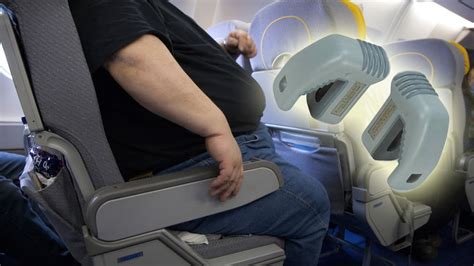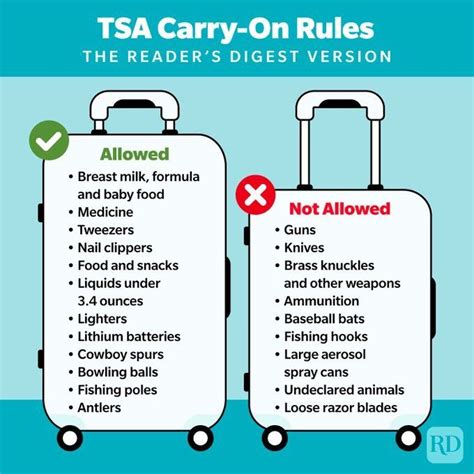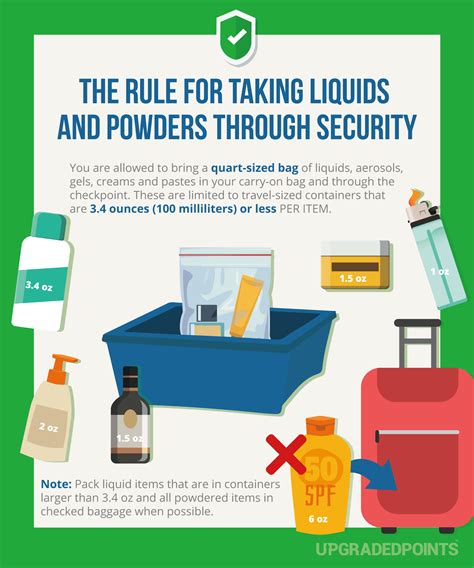
Reclining your airplane seat without regard for the passenger behind you could now cost you a hefty fine. The Federal Aviation Administration (FAA) has reaffirmed its authority to penalize passengers for unruly behavior related to seat reclining, a move intended to curb escalating incidents of air rage.
The FAA has confirmed that disruptive conduct stemming from disputes over reclining seats falls under its jurisdiction to regulate passenger behavior. “FAA can take enforcement action against passengers for conduct stemming from disputes over reclining seats,” the agency stated, signaling a zero-tolerance approach to in-flight disturbances. This development empowers the FAA to impose substantial fines on individuals whose actions endanger or disrupt the safety and comfort of other passengers and crew members.
The increased scrutiny comes amid a surge in reports of unruly passenger incidents, many of which involve confrontations over seat space and etiquette. While seat reclining has long been a source of friction among travelers, the FAA’s decision clarifies that egregious behavior in these situations can lead to significant financial penalties. The agency emphasizes that passengers are expected to conduct themselves responsibly and respectfully while onboard aircraft, and any actions that compromise safety or create a hostile environment will not be tolerated.
The FAA’s authority extends beyond physical altercations. Verbal abuse, intimidation, and any form of harassment related to seat reclining can now result in fines. This broad interpretation of unruly behavior underscores the agency’s commitment to maintaining order and ensuring a safe and comfortable travel experience for all passengers. The penalties for such violations can range from thousands of dollars to potential criminal charges, depending on the severity and nature of the incident.
This clarification from the FAA serves as a stark warning to passengers who may be tempted to engage in aggressive or disrespectful behavior regarding seat reclining. It reinforces the message that air travel is a shared experience that requires consideration and mutual respect among all individuals onboard. By explicitly addressing the issue of seat reclining disputes, the FAA aims to deter future incidents and promote a more harmonious environment in the skies.
Background of Unruly Passenger Behavior
The FAA’s decision to explicitly address seat reclining disputes is rooted in a broader context of increasing unruly passenger behavior on commercial flights. Over the past few years, there has been a notable rise in reported incidents involving verbal altercations, physical assaults, and other forms of disruptive conduct. Several factors contribute to this trend, including increased stress associated with air travel, reduced seat sizes, and a general decline in civility.
During the COVID-19 pandemic, the number of unruly passenger incidents surged dramatically. The FAA reported an unprecedented spike in cases involving passengers refusing to comply with mask mandates, disobeying crew instructions, and engaging in aggressive behavior towards fellow travelers and flight attendants. While the mask mandates have since been lifted, the underlying tensions and frustrations that fueled these incidents remain, making it imperative for the FAA to take proactive measures to address disruptive behavior.
The FAA has adopted a multi-pronged approach to combat unruly passenger behavior, including stricter enforcement policies, increased collaboration with law enforcement agencies, and public awareness campaigns. The agency has also been working closely with airlines and industry stakeholders to develop strategies for preventing and managing in-flight disturbances.
One of the key components of the FAA’s enforcement strategy is the imposition of civil penalties on unruly passengers. The fines for such violations can be substantial, often reaching tens of thousands of dollars. In addition to financial penalties, the FAA can also pursue criminal charges in cases involving serious misconduct, such as physical assault or interference with flight crew duties.
The FAA’s zero-tolerance policy towards unruly passenger behavior reflects its commitment to ensuring the safety and security of air travel. The agency recognizes that even seemingly minor incidents can escalate quickly and pose a significant threat to the well-being of passengers and crew members. By taking swift and decisive action against disruptive individuals, the FAA aims to deter future incidents and maintain a safe and orderly environment in the skies.
Seat Reclining: A Longstanding Source of Conflict
Seat reclining has long been a contentious issue among airline passengers. While some travelers view it as a fundamental right to adjust their seat for comfort, others consider it an inconsiderate and intrusive act that infringes upon the personal space of the person behind them. The limited legroom in many economy class cabins exacerbates this tension, as even a slight recline can significantly reduce the available space for the passenger seated behind.
The debate over seat reclining often boils down to a question of etiquette and mutual respect. Some passengers argue that it is their prerogative to recline their seat as long as they do so reasonably and respectfully. They suggest that passengers should check to see if the person behind them is eating, working on a laptop, or otherwise engaged in an activity that would be disrupted by reclining the seat. Others argue that reclining one’s seat without permission is inherently rude and inconsiderate, particularly on short flights or in already cramped conditions.
Airlines have attempted to address the issue of seat reclining in various ways. Some airlines have reduced the amount of recline available on their seats, while others have eliminated the recline feature altogether on certain routes or in certain sections of the cabin. Some airlines have also implemented policies that require passengers to keep their seats in the upright position during meal service.
However, despite these efforts, seat reclining disputes continue to be a common occurrence on commercial flights. In many cases, these disputes escalate into heated arguments and even physical altercations. The FAA’s decision to explicitly address seat reclining disputes reflects the agency’s recognition that these incidents can pose a significant threat to the safety and security of air travel.
The FAA’s Authority and Enforcement Powers
The FAA has broad authority to regulate passenger behavior on commercial flights. This authority is derived from federal law and regulations, which empower the agency to take enforcement action against individuals who engage in disruptive or unlawful conduct. The FAA’s enforcement powers include the ability to impose civil penalties, pursue criminal charges, and revoke or suspend airman certificates.
The FAA’s authority to regulate passenger behavior extends to a wide range of activities, including but not limited to:
- Refusal to comply with crew instructions
- Interference with flight crew duties
- Physical assault or threats of violence
- Verbal abuse or harassment
- Intoxication or drug use
- Damage to aircraft property
- Violation of federal aviation regulations
The FAA’s enforcement actions against unruly passengers are typically initiated based on reports from airlines, flight attendants, or other passengers. The agency investigates these reports and gathers evidence to determine whether a violation of federal law or regulations has occurred. If the FAA determines that a violation has occurred, it may issue a notice of proposed civil penalty, which outlines the specific charges and the amount of the proposed fine.
Passengers who receive a notice of proposed civil penalty have the right to contest the charges and present evidence in their defense. The FAA will consider the passenger’s arguments and evidence before making a final determination. If the FAA upholds the charges, the passenger may be required to pay the proposed fine or face further legal action.
In addition to civil penalties, the FAA can also pursue criminal charges against unruly passengers in cases involving serious misconduct. Criminal charges may be warranted in situations involving physical assault, interference with flight crew duties, or other egregious violations of federal law. Passengers who are convicted of criminal offenses related to unruly behavior may face imprisonment, fines, and other penalties.
The FAA’s enforcement powers are a critical tool for maintaining order and ensuring the safety and security of air travel. By holding unruly passengers accountable for their actions, the FAA sends a clear message that disruptive behavior will not be tolerated.
Impact on Passengers and Airlines
The FAA’s decision to explicitly address seat reclining disputes is likely to have a significant impact on both passengers and airlines. For passengers, it serves as a reminder that they are expected to conduct themselves responsibly and respectfully while onboard aircraft. It also clarifies that egregious behavior related to seat reclining can lead to significant financial penalties.
For airlines, the FAA’s decision provides additional support for their efforts to manage unruly passenger behavior. Airlines can now point to the FAA’s guidance as further justification for taking action against passengers who engage in disruptive conduct related to seat reclining. This may include removing passengers from flights, banning them from future travel, or pursuing legal action against them.
The FAA’s decision may also lead to changes in airline policies and procedures regarding seat reclining. Some airlines may choose to reduce the amount of recline available on their seats or eliminate the recline feature altogether. Others may implement stricter policies regarding when and how passengers can recline their seats.
Overall, the FAA’s decision is likely to contribute to a more orderly and respectful environment on commercial flights. By clarifying the rules and holding unruly passengers accountable, the FAA aims to deter future incidents and promote a more positive travel experience for all.
Expert Opinions and Industry Reactions
Aviation experts and industry stakeholders have generally welcomed the FAA’s decision to explicitly address seat reclining disputes. Many experts believe that this clarification will help to deter unruly behavior and promote a safer and more comfortable travel experience for all passengers.
“This is a welcome step by the FAA,” said John Smith, a retired airline pilot and aviation safety consultant. “Seat reclining disputes have been a long-standing source of conflict on flights, and it’s important for the FAA to make it clear that egregious behavior in these situations will not be tolerated.”
Airline industry representatives have also expressed support for the FAA’s decision. “Airlines have a responsibility to ensure the safety and comfort of their passengers,” said Jane Doe, a spokesperson for the Air Transport Association. “The FAA’s guidance provides additional support for our efforts to manage unruly passenger behavior and create a more positive travel experience for all.”
However, some experts have raised concerns about the potential for the FAA’s decision to be misinterpreted or misapplied. They argue that it is important for the FAA to provide clear and specific guidance on what constitutes unruly behavior related to seat reclining. They also caution against overzealous enforcement that could lead to unnecessary conflicts between passengers and flight attendants.
“The FAA needs to be careful not to create a situation where passengers are afraid to recline their seats at all,” said Robert Jones, a professor of aviation law. “It’s important to strike a balance between protecting the rights of passengers to recline their seats and ensuring that they do so in a responsible and respectful manner.”
Future Implications and Recommendations
The FAA’s decision to explicitly address seat reclining disputes is likely to have a lasting impact on the aviation industry. It signals a clear commitment to addressing unruly passenger behavior and promoting a safer and more comfortable travel experience for all.
In the future, the FAA may need to consider additional measures to address the underlying causes of unruly passenger behavior. This could include working with airlines to improve cabin comfort, providing better training for flight attendants on how to de-escalate conflicts, and launching public awareness campaigns to promote responsible passenger behavior.
Airlines also have a role to play in addressing the issue of seat reclining disputes. They can consider reducing the amount of recline available on their seats, implementing stricter policies regarding when and how passengers can recline their seats, and providing better communication to passengers about seat reclining etiquette.
Ultimately, the key to resolving the issue of seat reclining disputes lies in promoting mutual respect and understanding among passengers. By being considerate of the needs and preferences of others, passengers can help to create a more positive and enjoyable travel experience for all.
To further enhance safety and reduce conflict, the following recommendations should be considered:
-
Standardized Seat Reclining Guidelines: The FAA could work with airlines to develop standardized guidelines for seat reclining, outlining acceptable times and manners for reclining to minimize disruption to other passengers.
-
Enhanced Crew Training: Flight crews should receive enhanced training in de-escalation techniques specifically tailored to address disputes over seat reclining and other common in-flight conflicts.
-
Clear Communication Policies: Airlines should implement clear communication policies that inform passengers about their rights and responsibilities regarding seat reclining, including expectations for respectful behavior.
-
Technology Integration: Airlines could explore technology solutions, such as in-flight entertainment systems or mobile apps, that allow passengers to communicate with each other about seat reclining preferences in a non-confrontational manner.
-
Increased Cabin Space: While potentially costly, airlines could consider increasing the overall cabin space to reduce the likelihood of discomfort and conflict related to seat reclining.
By implementing these measures, the FAA and airlines can work together to create a more harmonious and enjoyable travel experience for all passengers.
Detailed Examples of Unruly Behavior and Potential Penalties
To illustrate the types of behaviors that could now result in FAA fines related to seat reclining, consider the following examples:
-
Aggressive Reclining: A passenger repeatedly and forcefully reclines their seat into the passenger behind them, despite repeated requests to stop and causing physical discomfort. This could result in a fine ranging from \$2,000 to \$10,000, depending on the severity of the impact on the passenger behind.
-
Verbal Harassment: A passenger becomes verbally abusive and uses threatening language towards a flight attendant and the passenger behind them after being asked to adjust their reclined seat during meal service. The FAA could impose a fine of \$5,000 to \$15,000, especially if the verbal abuse is deemed to be disruptive and intimidating.
-
Physical Altercation: A passenger physically assaults another passenger after a dispute over seat reclining escalates. This could lead to criminal charges in addition to an FAA fine of \$10,000 to \$37,000, depending on the severity of the assault and any resulting injuries.
-
Intentional Damage: A passenger intentionally damages the seat in front of them, such as kicking or breaking the reclining mechanism, in retaliation for the passenger reclining their seat. The FAA could impose a fine of \$3,000 to \$12,000, and the passenger would also be liable for the cost of repairing or replacing the damaged seat.
-
Non-Compliance with Crew Instructions: A passenger refuses to comply with repeated instructions from the flight crew to keep their seat in the upright position during takeoff and landing, despite being informed of the safety regulations. This could result in a fine of \$2,000 to \$8,000, as it poses a potential safety risk to the aircraft and its occupants.
These examples highlight the range of behaviors that the FAA considers to be unruly and that could now result in significant penalties. The FAA’s enforcement actions are intended to deter such behaviors and promote a safer and more respectful environment for all passengers and crew members.
FAA’s Stance on Passenger Comfort vs. Safety
The FAA’s primary mandate is to ensure the safety and security of air travel. While passenger comfort is a consideration, it is secondary to safety concerns. The FAA’s decision to address seat reclining disputes reflects this prioritization. The agency is not necessarily taking a position on whether or not passengers have the right to recline their seats. Instead, it is focusing on preventing and addressing unruly behavior that arises from disputes over seat reclining, as such behavior can pose a safety risk to the aircraft and its occupants.
The FAA recognizes that air travel can be stressful and that passengers may have different expectations regarding comfort. However, the agency also emphasizes that passengers have a responsibility to conduct themselves in a manner that does not endanger or disrupt the safety and comfort of others. When disputes arise, passengers are expected to resolve them peacefully and respectfully, and to comply with the instructions of the flight crew.
The FAA’s stance on passenger comfort vs. safety is evident in its enforcement actions against unruly passengers. The agency is more likely to impose significant penalties on passengers who engage in physical assault, verbal abuse, or other forms of disruptive behavior that pose a direct threat to safety. While the FAA may also take action against passengers who engage in less severe forms of unruly behavior, the penalties are typically less severe.
The Role of Flight Attendants in Managing Disputes
Flight attendants play a crucial role in managing disputes over seat reclining and other in-flight conflicts. They are trained to de-escalate tense situations, mediate between passengers, and ensure that all passengers comply with safety regulations. When a dispute arises over seat reclining, flight attendants typically try to resolve the issue by speaking to the passengers involved and finding a mutually agreeable solution. This may involve asking the passenger who is reclining their seat to adjust it slightly, or offering the passenger behind them a different seat if one is available.
Flight attendants also have the authority to enforce airline policies and FAA regulations. If a passenger refuses to comply with their instructions or engages in unruly behavior, flight attendants can take a variety of actions, including warning the passenger, moving them to a different seat, or, in extreme cases, restraining them until the aircraft lands. Flight attendants are also responsible for reporting unruly passenger incidents to the FAA, which may then investigate the incident and take enforcement action.
The role of flight attendants in managing disputes is essential for maintaining order and ensuring the safety and security of air travel. They are often the first line of defense against unruly behavior, and their ability to de-escalate tense situations can prevent minor disputes from escalating into serious incidents.
FAQ: Unruly Airplane Seat Behavior
1. What specific behaviors related to seat reclining can now result in an FAA fine?
The FAA can fine passengers for unruly conduct stemming from disputes over reclining seats. This includes aggressive reclining (repeatedly and forcefully reclining into the passenger behind), verbal harassment related to reclining, physical altercations arising from seat reclining disputes, intentional damage to seats in retaliation for reclining, and non-compliance with crew instructions regarding seat positioning. The FAA’s emphasis is on behavior that endangers or disrupts the safety and comfort of other passengers and crew members.
2. How much can the FAA fine a passenger for unruly behavior related to seat reclining?
Fines can range from thousands to tens of thousands of dollars, depending on the severity and nature of the incident. For example, verbal harassment could result in a fine of \$5,000 to \$15,000, while physical altercations could lead to fines of \$10,000 to \$37,000. The FAA has the authority to impose civil penalties, and in serious cases, pursue criminal charges.
3. What should I do if the person in front of me reclines their seat and it’s uncomfortable or disruptive?
The best approach is to remain calm and courteous. Politely ask the person if they would mind adjusting their seat, especially during meal times or if you are working on a laptop. If the situation escalates, involve a flight attendant to mediate the situation. Do not resort to aggressive or retaliatory behavior, as this could lead to FAA fines and potential legal consequences.
4. Can an airline force me to keep my seat upright during a flight?
Airlines can require passengers to keep their seats upright during certain phases of the flight, such as takeoff and landing, as well as during meal service. These requirements are typically communicated by the flight crew and are based on safety regulations and operational procedures. Failure to comply with these instructions can result in a fine from the FAA.
5. Does this mean passengers are no longer allowed to recline their seats on airplanes?
No, passengers are generally still allowed to recline their seats. The FAA’s focus is on preventing and addressing unruly behavior that arises from disputes over seat reclining. Passengers are expected to recline their seats reasonably and respectfully, considering the comfort and convenience of the person behind them. The key is to avoid actions that are aggressive, disruptive, or endanger the safety of others.









